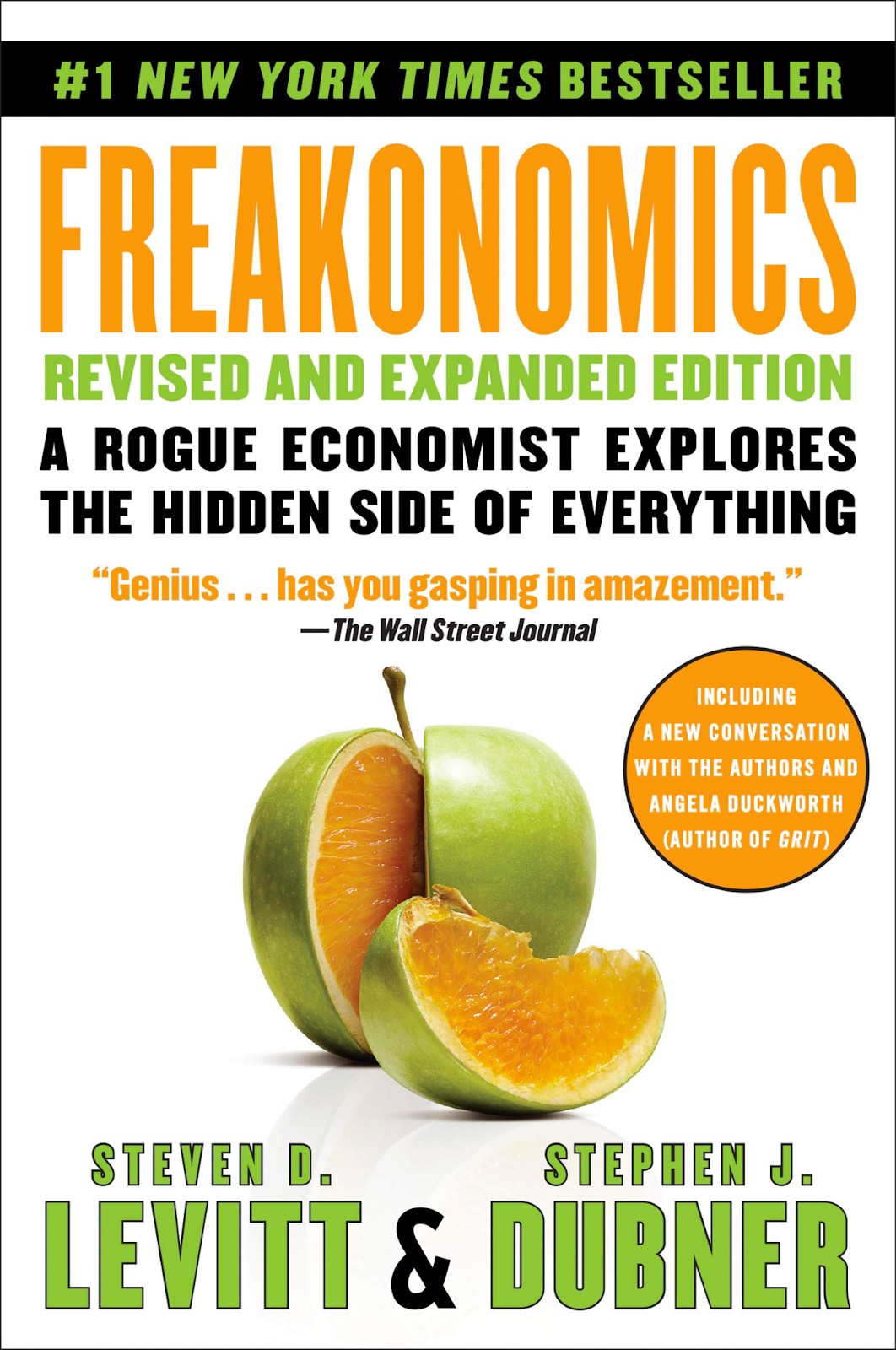Want to understand the world of economics but don’t know where to start? How Can I Learn Economics? is your comprehensive guide to mastering economics through self-study, offering a structured roadmap filled with resources and proven strategies from LEARNS.EDU.VN to help you build a solid foundation and achieve your learning goals in this dynamic field. Explore effective self-learning economics strategies.
1. Spark Your Interest with Introductory Economics Books
Instead of diving straight into complex textbooks, start with engaging books that showcase the real-world applications of economics. These books can pique your interest and provide a basic understanding of economic principles.
1.1. Freakonomics
Steven Levitt and Stephen Dubner’s Freakonomics demonstrates how economic methods can uncover surprising truths about the world. The book explores intriguing questions, revealing unexpected connections and challenging conventional wisdom.
1.2. Basic Economics
Basic Economics by Thomas Sowell offers a citizen’s guide to understanding how the economy works without relying on complex graphs and equations. This book explains economic concepts in a clear and accessible manner.
1.3. The Economists’ Hour
The Economists’ Hour explores an era when economists wielded significant influence on policy and politicians, providing insights into the intersection of government and economics.
1.4. Thinking Strategically
Thinking Strategically teaches how to use game theory to outmaneuver competition in various situations, highlighting the principles of strategic thinking through case studies.
2. Master Microeconomics and Macroeconomics Fundamentals
A strong foundation in microeconomics and macroeconomics is essential for understanding more advanced topics. Start with introductory courses or textbooks to grasp these fundamental concepts.
2.1. Microeconomics Resources
2.1.1. MIT Principles of Microeconomics Course – MIT OpenCourseWare
MIT OpenCourseWare offers a comprehensive introductory microeconomics course with lecture recordings, problem sets, and exams. This course provides a structured and rigorous learning experience.
2.1.2. Textbook: Principles of Microeconomics, 7th Edition, by Gregory Mankiw
Principles of Microeconomics is a popular textbook that explains fundamental concepts in an engaging and accessible manner. It illustrates how microeconomic principles apply to real-life decisions and behaviors.
2.2. Macroeconomics Resources
2.2.1. University of Queensland Macroeconomics Program – edX
The University of Queensland offers a three-course macroeconomics program through edX, covering macroeconomic indicators, policy, and international macroeconomics. You can also take the three macro courses separately and for free on edX. For example, macroeconomic policy.
2.2.2. Textbook: Principles of Macroeconomics by OpenStax
The Principles of Macroeconomics textbook covers essential topics in a clear and accessible manner, making it suitable for beginners.
3. Delve into the History of Economic Thought
Understanding the historical evolution of economic ideas provides valuable context and perspective. Explore the contributions of influential economists and their impact on shaping modern economic theory.
3.1. The Worldly Philosophers
Read The Worldly Philosophers: The Lives, Times And Ideas Of The Great Economic Thinkers to learn about the lives and ideas of Smith, Malthus, Marx, Keynes, Schumpter, and other giants of the social science.
4. Expand Your Knowledge with Beginner-Level Economics Courses
Taking multiple beginner-level courses will expose you to various sub-disciplines within economics and help you develop analytical thinking skills.
4.1. Financial Markets – Yale OpenCourseWare
Yale’s free online course on Financial Markets provides an overview of the ideas, institutions, and methods that allow society to create businesses, build wealth, and deal with risk.
4.2. Introduction to Political Economy – Duke University
Listen to Duke’s political economy lecture series for an engaging exploration of the intersection between economics and politics.
4.3. History of the U.S. Economy in the 20th Century – The Great Courses
The Great Courses offers a History of the US Economy in the 20th Century course, which takes you through ten lectures, each covering a different decade of the 1900s through an economic lens.
4.4. From Poverty to Prosperity: Understanding Economic Development – Oxford/edX
This Oxford, edX-hosted Understanding Economic Development course is perfect for you.
4.5. Behavioral Economics: An Introductory Course – Udemy
This Udemy course covers the basics of behavioral economics, a relatively new branch of economics that combines econ and psychology to better understand how and why people behave as they do.
5. Stay Informed with The Economist
Reading The Economist regularly will keep you informed about current economic issues and trends, helping you apply your knowledge to real-world events.
6. Deepen Your Understanding with Classic Economics Books
Reading classic economics books will expose you to foundational ideas and challenge you to think critically about economic theories.
6.1. Recommended Readings
- Adam Smith: The Wealth of Nations
- Karl Marx: Das Kapital
- John Maynard Keynes: The General Theory of Employment, Interest, and Money
- Milton Friedman: Capitalism and Freedom
- Friedrich Hayek: The Road to Serfdom
7. Evaluate Your Learning Goals and Interests
Take a moment to reflect on your learning goals and interests. Decide whether you want to pursue a more mathematical path or focus on specific areas of economics that intrigue you.
8. Advance Your Knowledge with Intermediate Economics
To progress further, study intermediate microeconomic theory and macroeconomics through online courses or textbooks. These courses require a stronger understanding of mathematics.
8.1. Intermediate Microeconomic Theory
8.1.1. MIT Course
This MIT course provides the readings, lecture recordings, problem sets, and other materials you need to self-study intermediate microeconomics.
8.1.2. Textbook
Hal Varian’s Intermediate Microeconomics: A Modern Approach is a classic on the topic.
8.2. Intermediate Macroeconomics
For this topic, I recommend working through the textbook Macroeconomics by N. Gregory Mankiw.
9. Explore Additional Intermediate Economics Courses
Delve deeper into specific areas of economics that pique your interest. Consider courses like:
- Game Theory
- International Economics
- Environmental Economics
10. Strengthen Your Analytical Skills with Statistics, Probability, and Econometrics
A solid understanding of statistics, probability, and econometrics is crucial for analyzing economic data and testing hypotheses.
10.1. Recommended Courses
- Statistics 1 and 2
- Finite Math (Probability-focused)
- Econometrics
11. Cultivate Curiosity and Pursue Continuous Learning
Continue exploring economics topics that fascinate you and consider expanding your knowledge into related social sciences.
11.1. Stay Curious
Keep studying something, whether it’s more economics, another social science, or something totally different.
FAQ: How Can I Learn Economics?
Q1: What are the foundational topics I should focus on when starting to learn economics?
A1: Begin with introductory microeconomics and macroeconomics to understand basic economic principles. Microeconomics studies individual decisions, while macroeconomics examines the economy as a whole.
Q2: What are some free online resources for learning economics?
A2: Explore platforms like MIT OpenCourseWare and edX, which offer free courses covering various economics topics. These resources provide lectures, readings, and assignments to guide your learning.
Q3: How can I apply economic concepts to real-world events?
A3: Regularly read publications like The Economist to stay informed about current economic issues. This will help you connect economic theories to real-world events and enhance your analytical skills.
Q4: Are there any recommended textbooks for self-studying economics?
A4: Consider textbooks such as “Principles of Microeconomics” by Gregory Mankiw and “Principles of Macroeconomics” by OpenStax. These books provide clear explanations and examples to help you grasp economic concepts.
Q5: What is the importance of understanding the history of economic thought?
A5: Studying the history of economic thought provides valuable context for understanding the evolution of economic theories. It also exposes you to the ideas of influential economists who shaped the field.
Q6: How do I choose beginner-level economics courses?
A6: Select courses that do not require advanced math skills and cover a wide range of economics topics. This will help you discover your interests and challenge you to think analytically about complex economic issues.
Q7: How can I improve my analytical skills in economics?
A7: Strengthen your understanding of statistics, probability, and econometrics. These tools are essential for analyzing economic data and testing hypotheses.
Q8: What are some classic economics books worth reading?
A8: Explore classic works such as Adam Smith’s “The Wealth of Nations” and Karl Marx’s “Das Kapital.” These books offer foundational insights into economic theories and systems.
Q9: What is behavioral economics, and why is it relevant?
A9: Behavioral economics combines economics and psychology to understand how and why people make decisions. It challenges traditional assumptions about rationality and provides insights into real-world behavior.
Q10: How do I stay motivated while self-studying economics?
A10: Set clear learning goals, track your progress, and explore economics topics that genuinely interest you. Join online communities or study groups to connect with other learners and stay motivated.
Self-learning economics requires dedication, discipline, and the right resources. By following this roadmap and staying curious, you can gain a solid foundation in economics and develop valuable analytical skills.
Ready to dive deeper into the world of economics? Visit learns.edu.vn today to discover more resources and courses that will help you achieve your learning goals! Contact us at 123 Education Way, Learnville, CA 90210, United States or Whatsapp: +1 555-555-1212.

